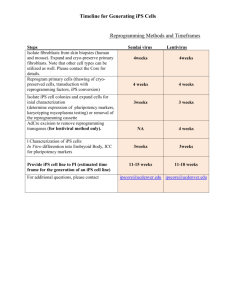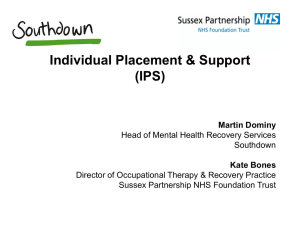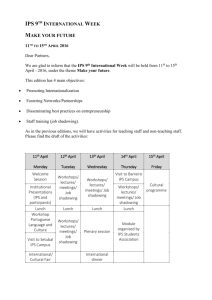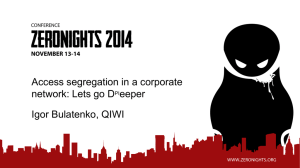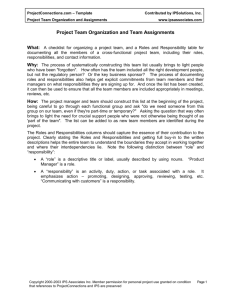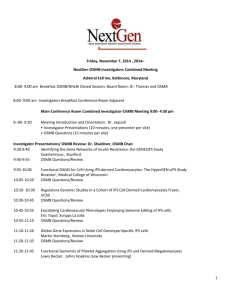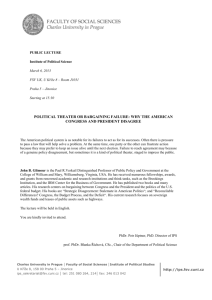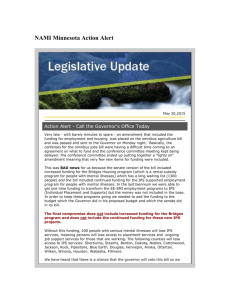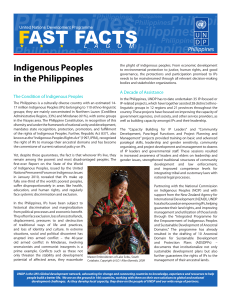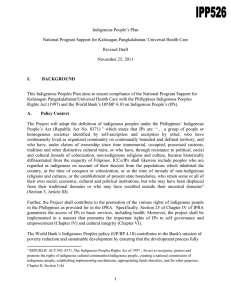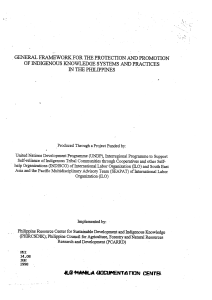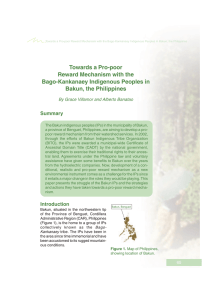in pursuit of larger freedom for the indigenous peoples - UN-NGLS
advertisement
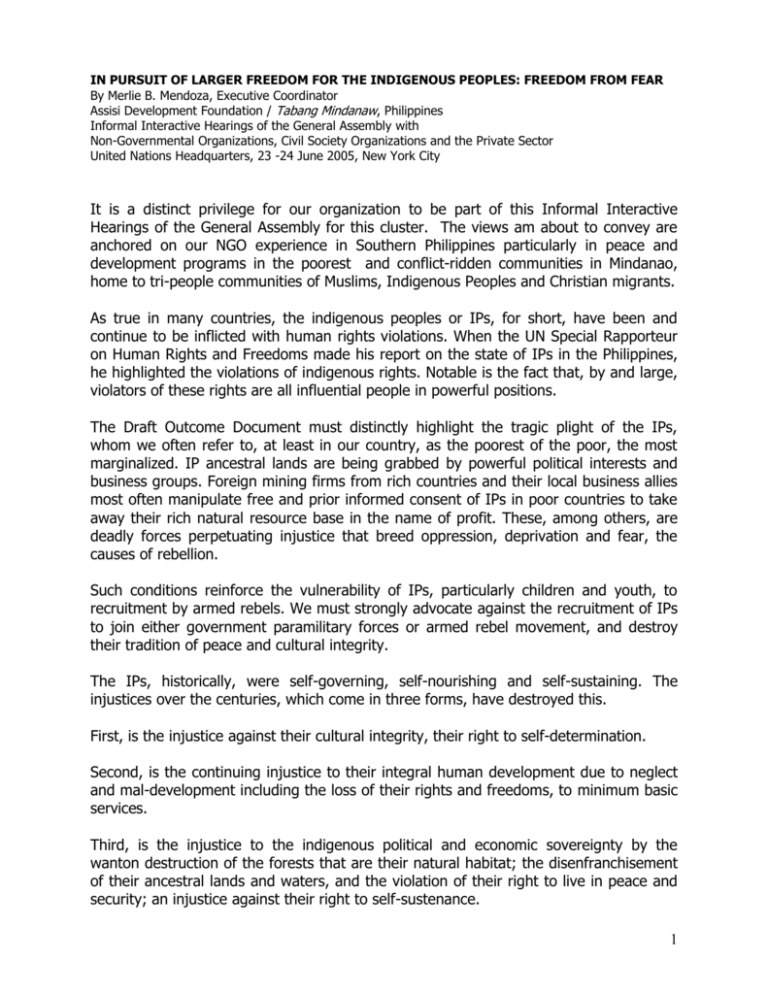
IN PURSUIT OF LARGER FREEDOM FOR THE INDIGENOUS PEOPLES: FREEDOM FROM FEAR By Merlie B. Mendoza, Executive Coordinator Assisi Development Foundation / Tabang Mindanaw, Philippines Informal Interactive Hearings of the General Assembly with Non-Governmental Organizations, Civil Society Organizations and the Private Sector United Nations Headquarters, 23 -24 June 2005, New York City It is a distinct privilege for our organization to be part of this Informal Interactive Hearings of the General Assembly for this cluster. The views am about to convey are anchored on our NGO experience in Southern Philippines particularly in peace and development programs in the poorest and conflict-ridden communities in Mindanao, home to tri-people communities of Muslims, Indigenous Peoples and Christian migrants. As true in many countries, the indigenous peoples or IPs, for short, have been and continue to be inflicted with human rights violations. When the UN Special Rapporteur on Human Rights and Freedoms made his report on the state of IPs in the Philippines, he highlighted the violations of indigenous rights. Notable is the fact that, by and large, violators of these rights are all influential people in powerful positions. The Draft Outcome Document must distinctly highlight the tragic plight of the IPs, whom we often refer to, at least in our country, as the poorest of the poor, the most marginalized. IP ancestral lands are being grabbed by powerful political interests and business groups. Foreign mining firms from rich countries and their local business allies most often manipulate free and prior informed consent of IPs in poor countries to take away their rich natural resource base in the name of profit. These, among others, are deadly forces perpetuating injustice that breed oppression, deprivation and fear, the causes of rebellion. Such conditions reinforce the vulnerability of IPs, particularly children and youth, to recruitment by armed rebels. We must strongly advocate against the recruitment of IPs to join either government paramilitary forces or armed rebel movement, and destroy their tradition of peace and cultural integrity. The IPs, historically, were self-governing, self-nourishing and self-sustaining. The injustices over the centuries, which come in three forms, have destroyed this. First, is the injustice against their cultural integrity, their right to self-determination. Second, is the continuing injustice to their integral human development due to neglect and mal-development including the loss of their rights and freedoms, to minimum basic services. Third, is the injustice to the indigenous political and economic sovereignty by the wanton destruction of the forests that are their natural habitat; the disenfranchisement of their ancestral lands and waters, and the violation of their right to live in peace and security; an injustice against their right to self-sustenance. 1 These three injustices can only be addressed within the broader framework of human security where justice and equity are the driving forces, and people are at the heart of governance. The removal of unjust structures and situations that foment conflict becomes the main thrust. A more important duty of the state is the welfare of its people, the protection of their inherent rights as citizens, the respect of their human rights and the guarantee of their freedoms, and for the indigenous peoples, freedom to live their cultures in peace and with integrity. The vision of the IPs to be, as it were, self-governing, self-nourishing, and selfsustaining must be protected. In a human security framework, people who are empowered to take charge of their own lives will protect the peace, will value their freedoms. When peoples’ rights are respected, their freedoms protected, they find neither place nor need for rebellion. This interlocking synergism between human security, human rights and human development is the most effective formula against insurgencies and rebellions. A human security framework for IPs, therefore, has three focal points (1) community empowerment to strengthen IP organizations and leaders for self-determination and self-governance, (2) development rights for the protection of ancestral domain and for integral human development for IPs to become self-nourishing, and (3) peace and security for the attainment of the freedoms that come with human security. All these should be urgently addressed by ALL governments, civil society and by the IPs themselves. Equally challenging is for civil society, NGOs and private sector to creatively engage in constructive peace policy advocacy and to provide heads of state and leaders of rebellion with peace options lest they be drawn to an endless war of attrition that cannot be won by force of arms. We must persuade our governments to shift from national state security framework to human security. Civil society, NGOs and private sector can show models that prove how war-torn communities can be transformed into sanctuaries of peace. Bridging societal divides can only happen with multi stakeholders engagement taking off from individual and collective ownership of problems and challenges towards building communities organized and empowered to pursue human security. In summary, for peace to take root three processes are essential: (a) institutional reform to provide good, humane and just governance, (b) protection of human rights, human security and human development and (c) spiritual and cultural healing to bind the wounds and pave the way to rebuilding relationships with oneself, with one another and with nature. In conclusion, in our collective pursuit of larger freedom, let us seek restitution, restoration and protection for the IPs as their lives are rooted in land, a land that is now tragically and fundamentally shattered, indeed a profound threat to the survival of the indigenous peoples who have now become a vanishing tribe. Thank you, Mr. President. 2 3
